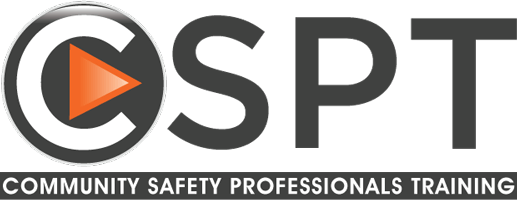Overview
This course covers a wide range of topics with a focus on national strategic development, the wider community safety agenda and supervising casework. This course allows delegates to explore the history of Community Safety strategy and the concept of Antisocial Behaviour with a focus on how partnerships operate and how historical cases have shaped current practice and strategy.
Who should attend?
This course is for managers or aspiring managers working in the ASB and community safety sector. It will appeal to those wishing to advance their career in management or managers who want to develop their strategic approach as well as supervisory skills.
Course content
The aim of the qualification is to teach Managers or the learner who aspires to manage community safety or antisocial behaviour management teams; its aim is to: equip them with or develop their skills to manage such teams effectively. It gives learners the opportunity to:
- Learn about the origins of concern in community safety and understand the political drivers in order to create a more effective response.
- Learn how to supervise crime and disorder or antisocial behaviour caseworkers particularly under-performing staff or those who need development
- Understand the range of resolutions available when dealing with crime and disorder issues so that they can evaluate preferred options and advise staff accordingly
- Learn how to effectively engage with communities suffering from crime, disorder or antisocial behaviour issues to promote public confidence
It consists of the following modules each of which can be considered as a separate course:
- The Community Safety Background
- Supervising Crime and Disorder Cases
- Tools and Powers to Resolve Antisocial Behaviour
- Community Confidence and Antisocial Behaviour
Course Learning hours
This qualification takes 80 hours to complete, it is divided into 4 modules which are delivered over 4 online sessions.
The rest of the time is spent in distance learning (reading course materials) and completing a post-course assignment (dissertation).
- 1 hour of self-study (pre-read) per course
- 4 x 3 hours of online tuition
- Post-course assignment.
The qualification programme is comprised of the following 4 modules.
- Community Safety Agenda: Friday 4th October 2024
- ASB Tools & Powers: Friday 11th October 2024
- Supervising Casework: Friday 18th October 2024
- Community Engagement: Friday 25th October 2024
Course 1 – The Community Safety Background
The ability to lead or manage in an effective way, Community Safety Partnership teams, workers tackling crime and disorder or those investigating cases of antisocial behaviour (ASB) can be greatly improved by an understanding of the context and background of public and governmental concerns with the problems.
It is also important for managers to understand the changes in the models of criminal justice which have led to victims being overlooked and thereby more likely to suffer adverse consequences if reparative policies are not in place.
This unit will provide learners with an understanding of the origins of public concerns with conduct that is now labelled as antisocial behaviour, an understanding of how it was dealt with in the past and the political initiatives that have led to the current legislation and status quo.
The changing models of criminal justice from “crime control” to “due process” that has run alongside the political initiatives will be examined and explained together with the implications for victims, putting them into context, thereby enabling the learner to develop a greater understanding and ensure more effective management of resolutions.
Course Content (Learning Objectives)
1 - Understand the origins of public and governmental concern with Anti Social Behaviour in the UK.
- The politics of antisocial behaviour
- Historic means of dealing with unacceptable behaviour
- The politicisation of antisocial behaviour and community safety
- The introduction of legislation regulating the management of antisocial behaviour
- Public concern with, and the labelling of, unacceptable behaviour
2 -Understand the difference between “crime control” and “due process” in criminal justice and the implications for victims changes in the UK criminal justice system:
- The paradigm changes in criminal justice within the UK from “crime control” to due process and its effect on the victims of antisocial behaviour
- Victimisation and addressing victim issues
- Notable antisocial behavioural case studies
- Initiatives designed to promote victim rights.
Course 2 - Supervising Antisocial Behaviour Cases
Course 2 - Supervising Antisocial Behaviour Cases
The ability to supervise caseworkers is an important function for managers of Community Safety Partnership as well as managers of other teams tackling crime and disorder or investigating cases of antisocial behaviour.
This ability is predicated upon knowledge of investigation processes, supervisory skills and the ability to engender good working practices. In particular, supervisors should ensure that any investigative techniques used are lawful, Good managers should also be able to develop worker skills bring about high morale and have the ability to support inexperienced caseworkers.
This unit will teach managers and aspiring managers how to supervise cases and ensure compliance with the law. It will also teach them how to develop their case workers and how to plan for changes and challenges whilst maintaining morale.
Course Content (Learning Objectives)
1 - Understand how to supervise an antisocial behaviour investigation
Investigations:
- The scientific methods of conducting investigations into antisocial behaviour
- Appropriate investigation techniques and steps for dealing with antisocial behaviour cases
- Lawful use of informants when dealing with antisocial behaviour cases
2 - Understand what is required to develop and manage antisocial behaviour caseworkers
Staff:
- Instructing caseworkers on casework, record keeping, dealing with witnesses and court preparation
- Appraising staff, developing them and creating remedial action plans
- Planning for change and promoting staff morale
Course 3 - Tools and Powers
Course 3 - Tools and Powers
The ability to effectively address antisocial behaviour or crime and disorder issues depends on a good knowledge of the methods available to address it so that resolution options can be evaluated and the most appropriate techniques chosen.
The options include informal resolution tools as well as the legislative powers available through the courts. A resolution approach can be focused on either perpetrators or locations.
This unit will provide learners with knowledge of those tools and powers which will be taught together with advice on which is best or most appropriate to use in various cases.
Course Content (Learning Objectives)
1 - Understand informal and legislative resolution methods for anti-social behaviour as applied to perpetrators.
Informal resolution options relating to perpetrators:
- Tenancy agreements
- Warnings and letters
- Acceptable behaviour agreements and contracts
Legislative resolution options relating to perpetrators:
- Fixed penalties and other restorative out-of-court disposals
- Orders and injunctions
- Conditions and prohibitions
2 - Understand informal and legislative resolution methods for anti-social Behaviour as applied to places
Informal resolution options relating to places:
- Physical options to resolve crime and disorder problems
- Notices and non-legislative techniques
- Legislative resolution options relating to places
- Repossessions
- Closure orders
- Community protection orders
Course 4 - Promoting Confidence / Community Engagement
Course 4 Promoting Confidence / Community Engagement
The capability of Community Safety Partnerships and other organisations to promote community confidence is important in reducing the fear of crime and adverse perceptions relating to their likelihood of being affected by antisocial behaviour.
This unit will provide learners with knowledge of what can be done by themselves and the role of others in engaging with communities to promote confidence. They will also be taught the law in relation to publishing sentencing outcomes and legal sanctions obtained which are directed towards either perpetrators or locations in order to reduce the incidents of crime, disorder and antisocial behaviour.
Course Content (Learning Objectives)
1- Understand ways in which to engage the community in order to promote community confidence
Community Engagement Toolkit:
- Planning and designing community engagement
- Quality standards for community engagement
- Tools to help choose a community engagement method
- Methods and techniques
- Resources
Police and Crime Commissioners:
- The role of the Police and Crime Commissioner
2 - Understand measures to publish antisocial behaviour sanctions
Publishing Restrictions
- Publishing injunctive restrictions imposed towards properties
- Publishing injunctive restrictions imposed in relation to public places
- Making partners aware of injunctive restrictions focused on perpetrators
- Ensuring compliance with restrictive sanctions
- Ensuring compliance with positive requirements
Publishing Sentences:
- Publishing sentencing outcomes
- Community sentences
- Community payback aims
- Nominating local projects



